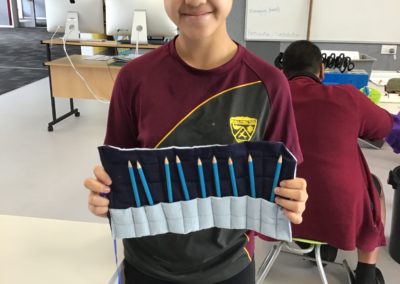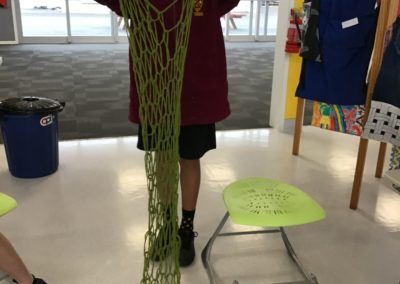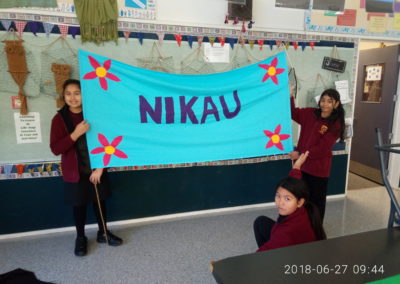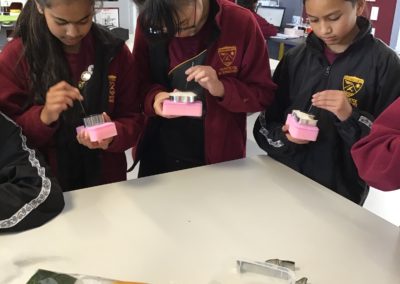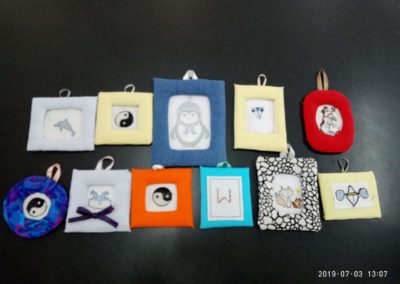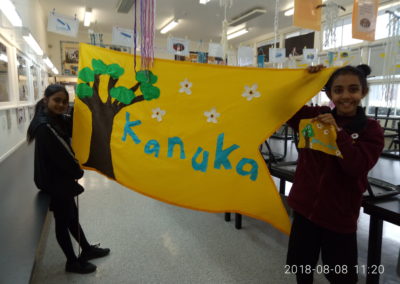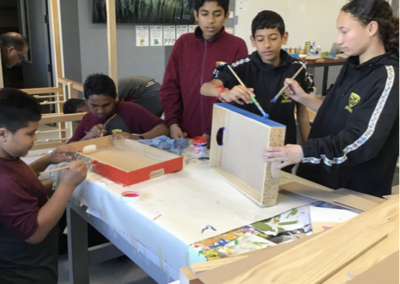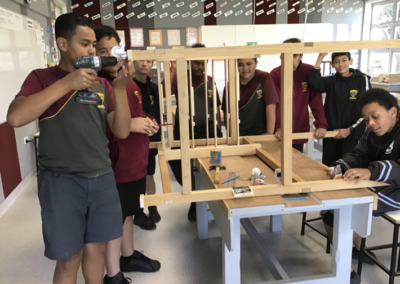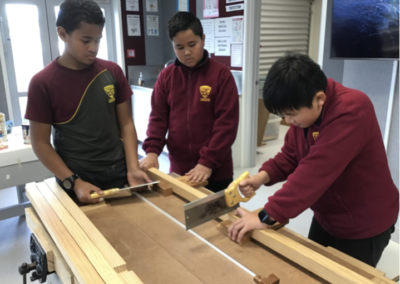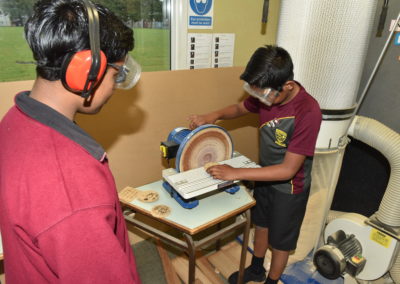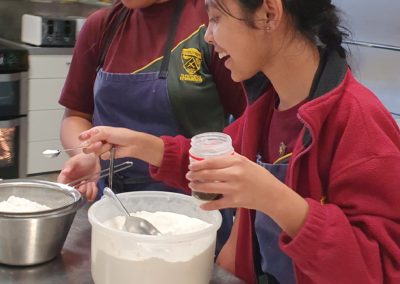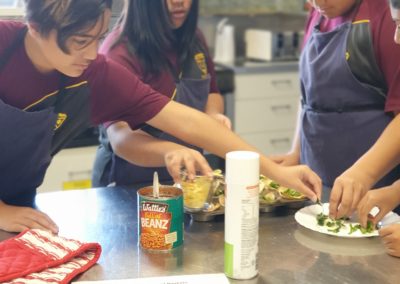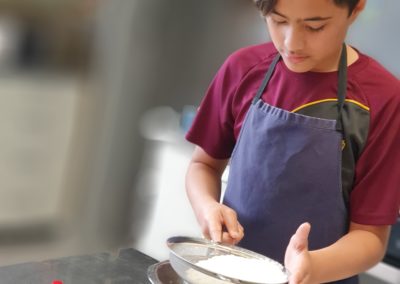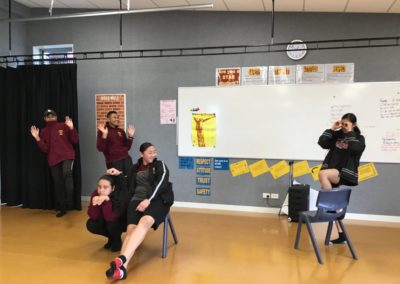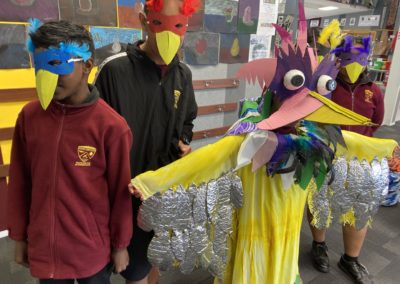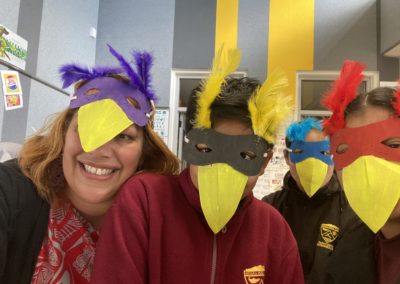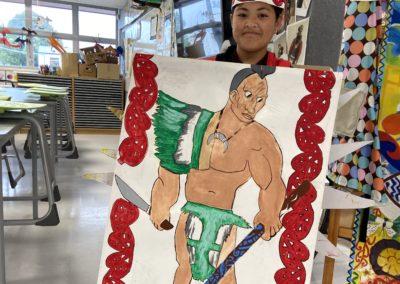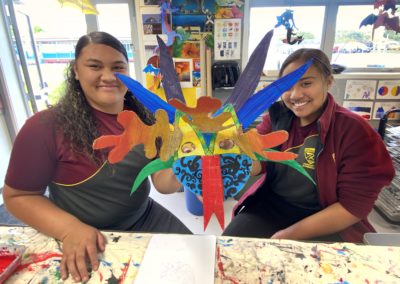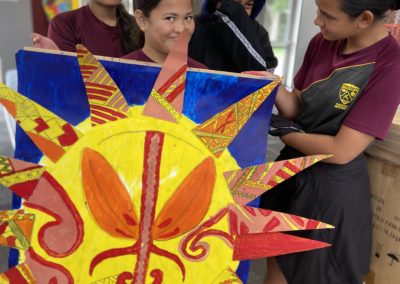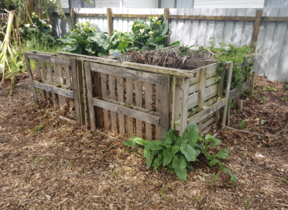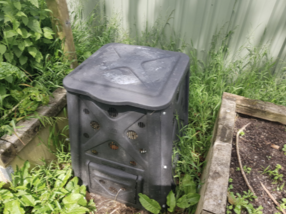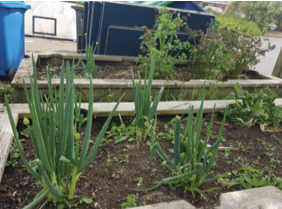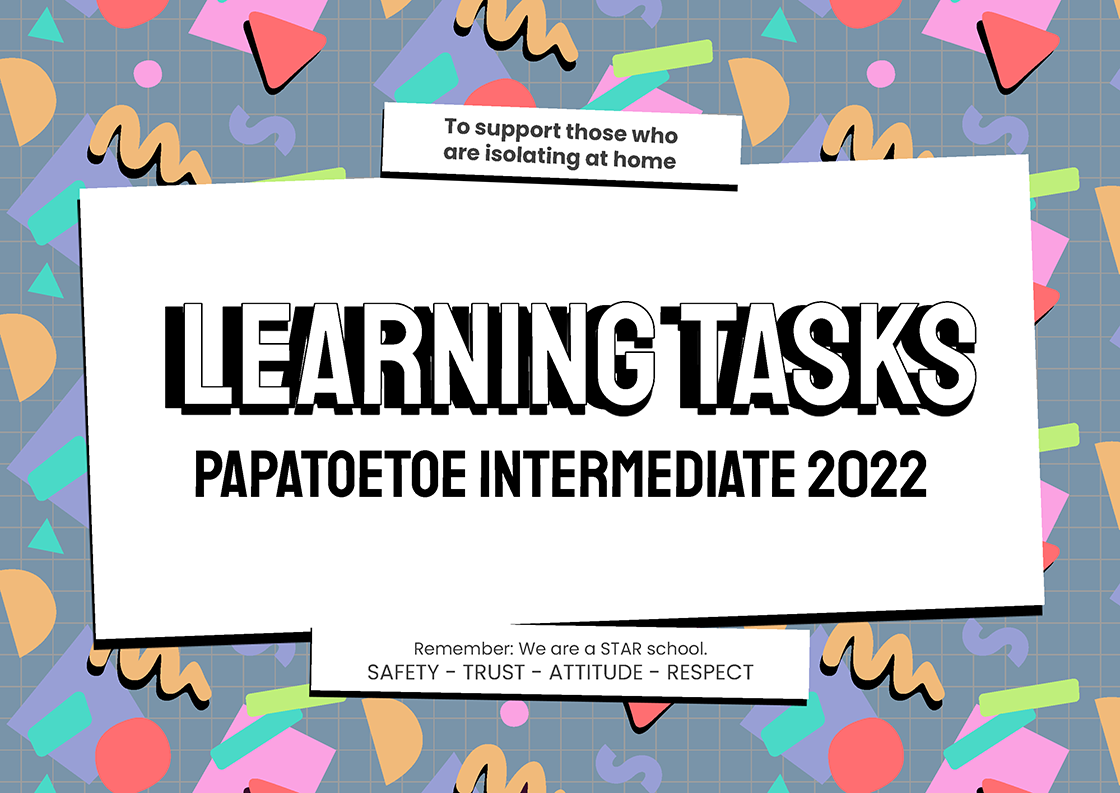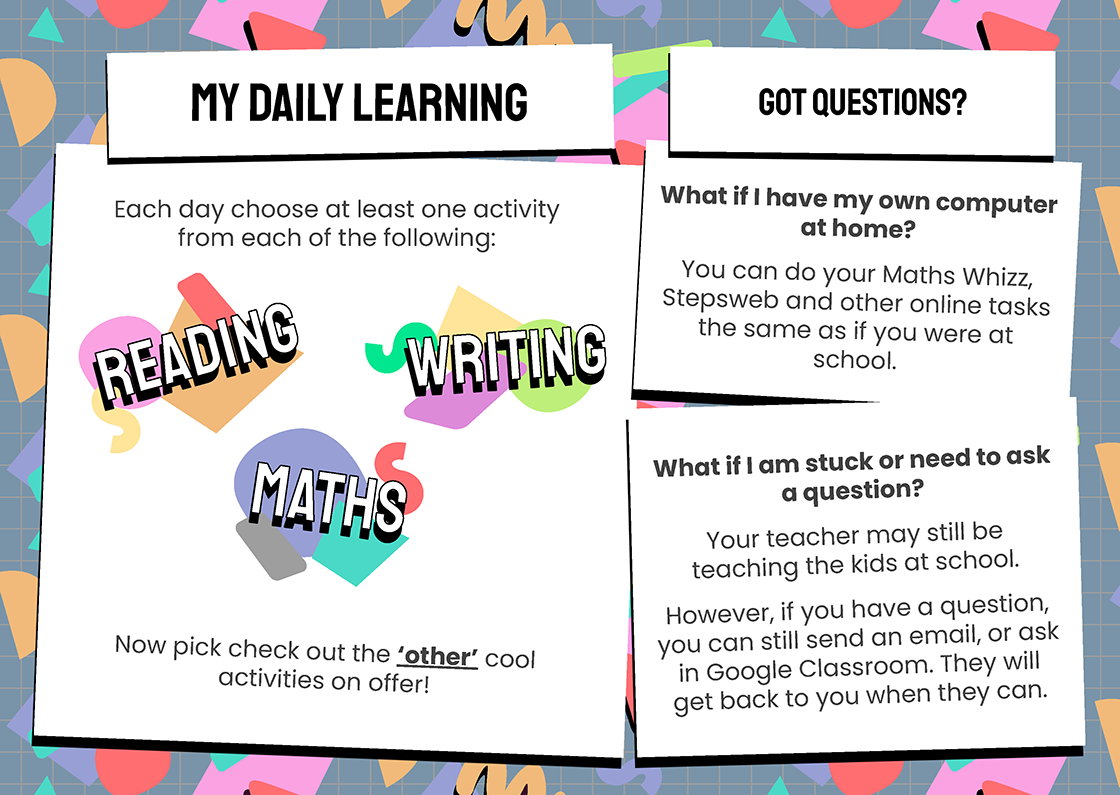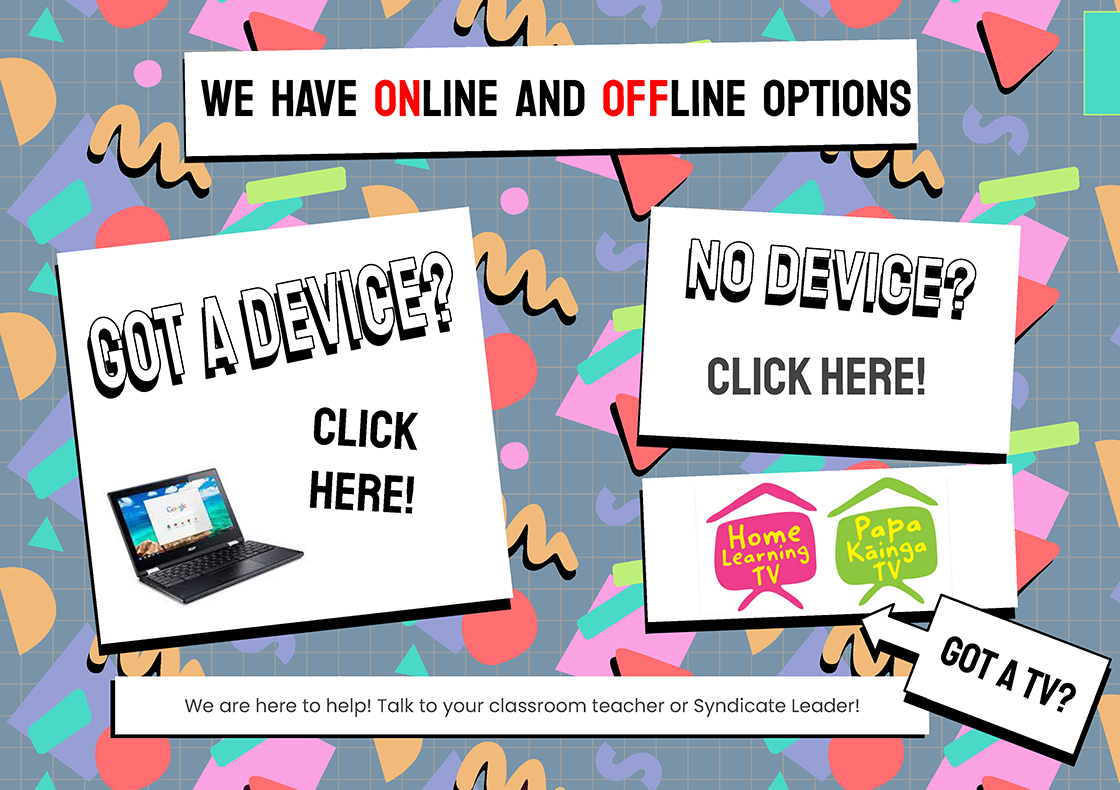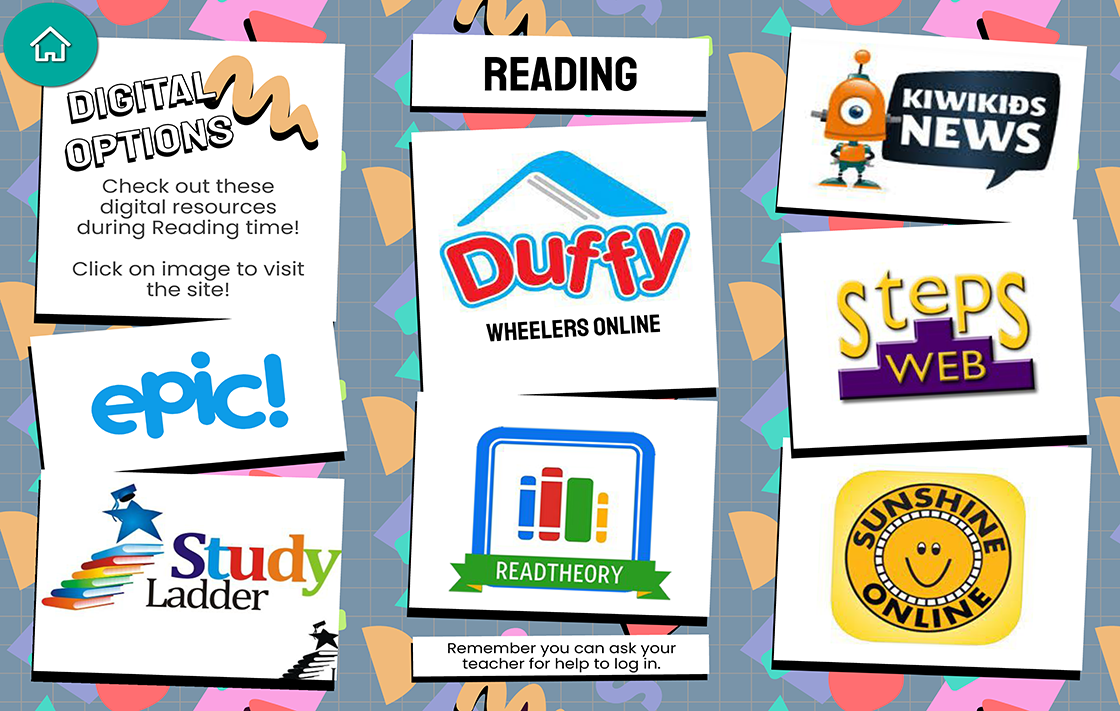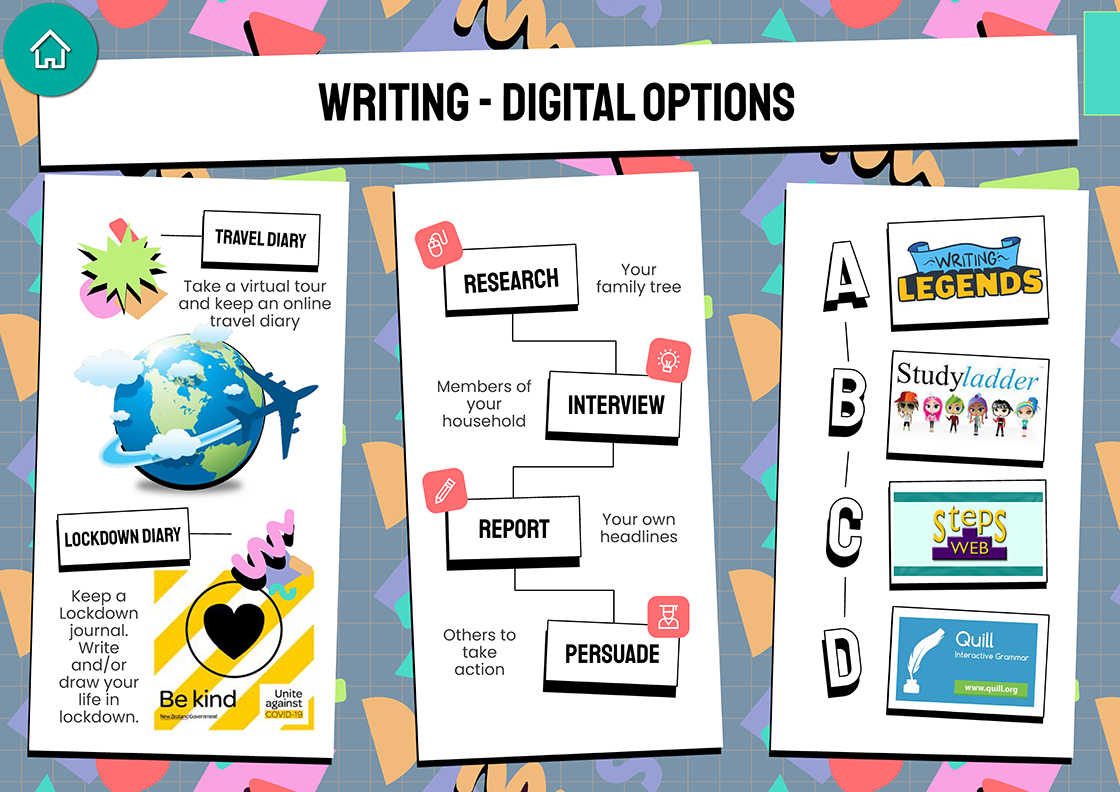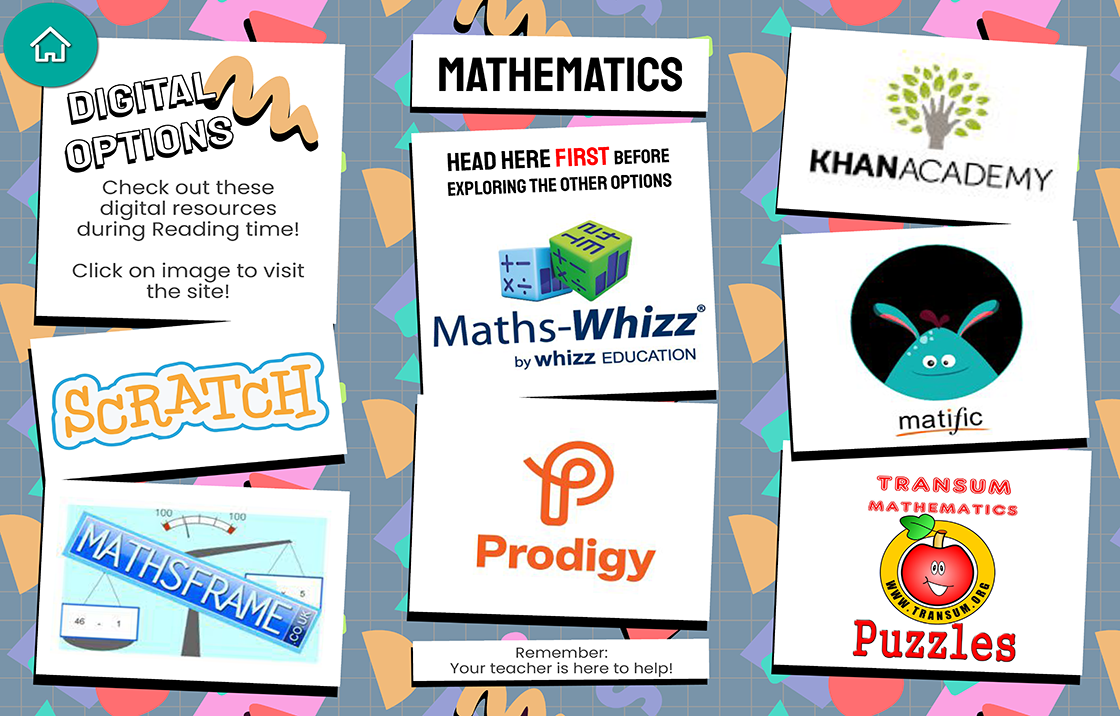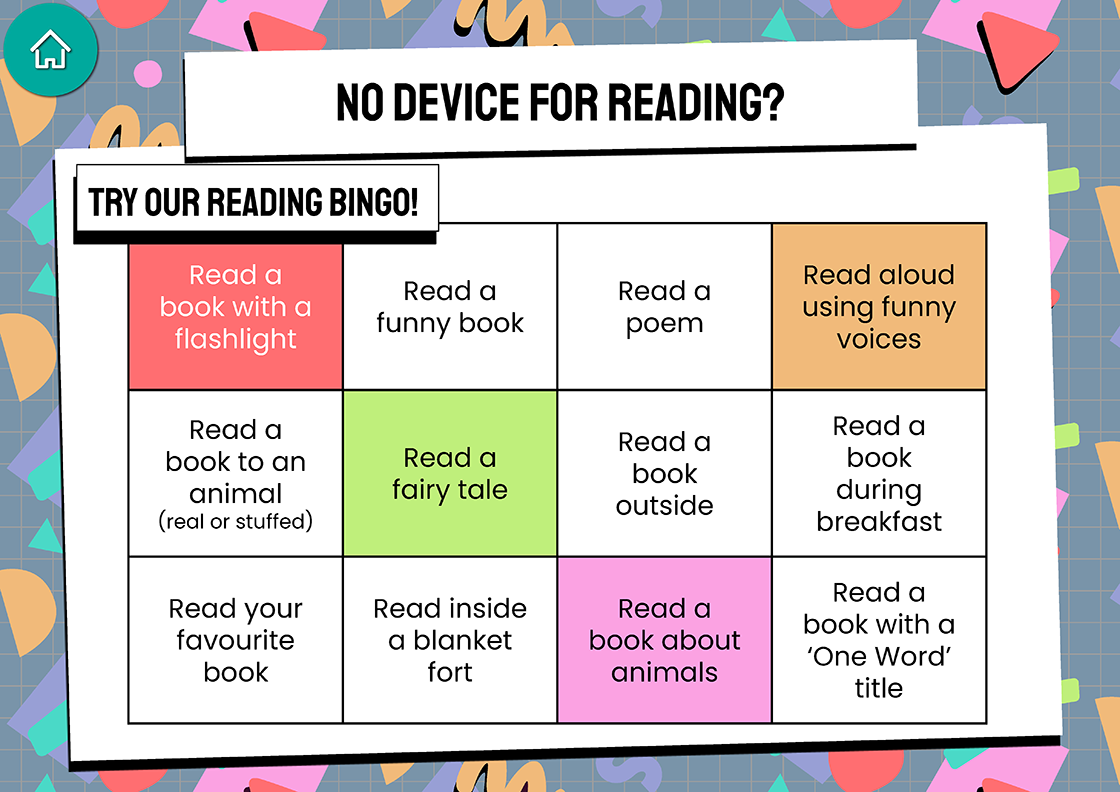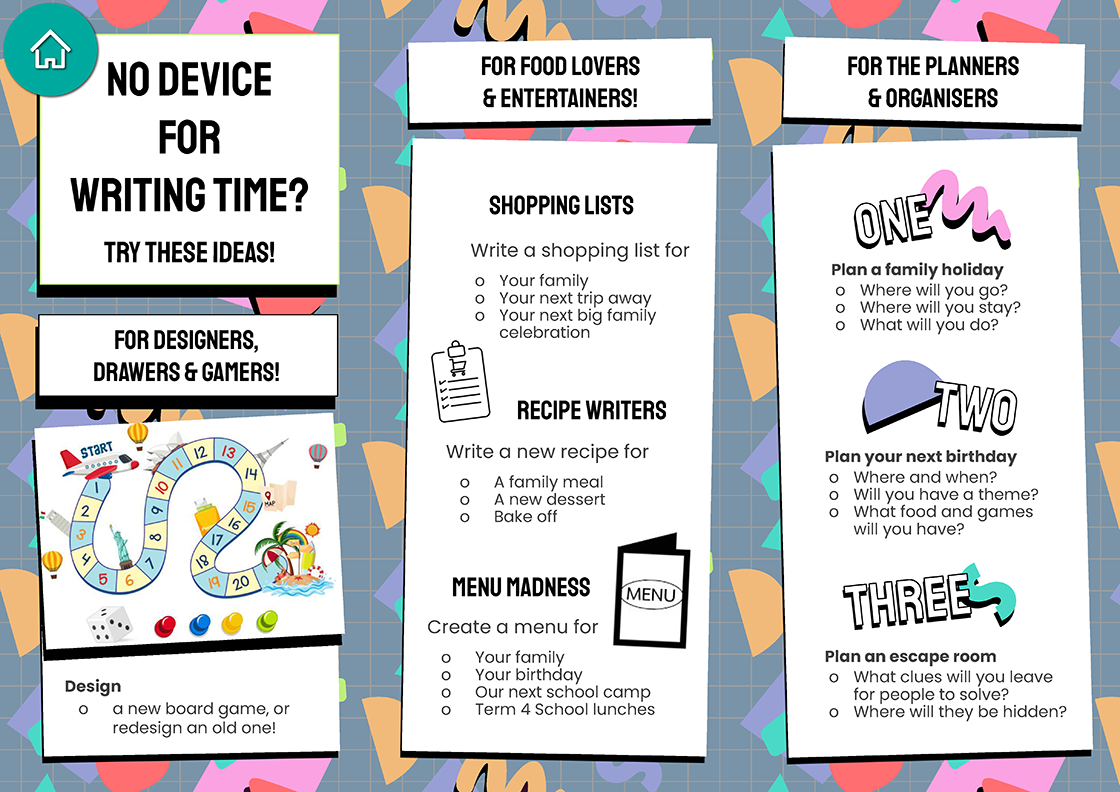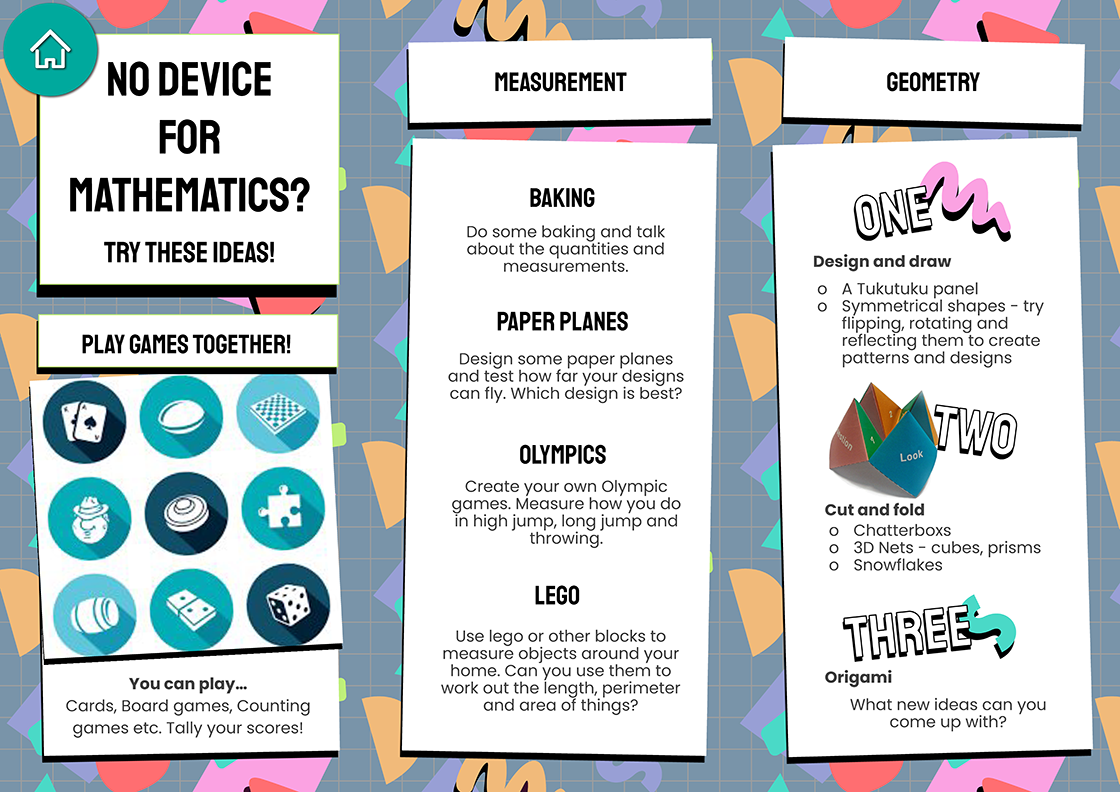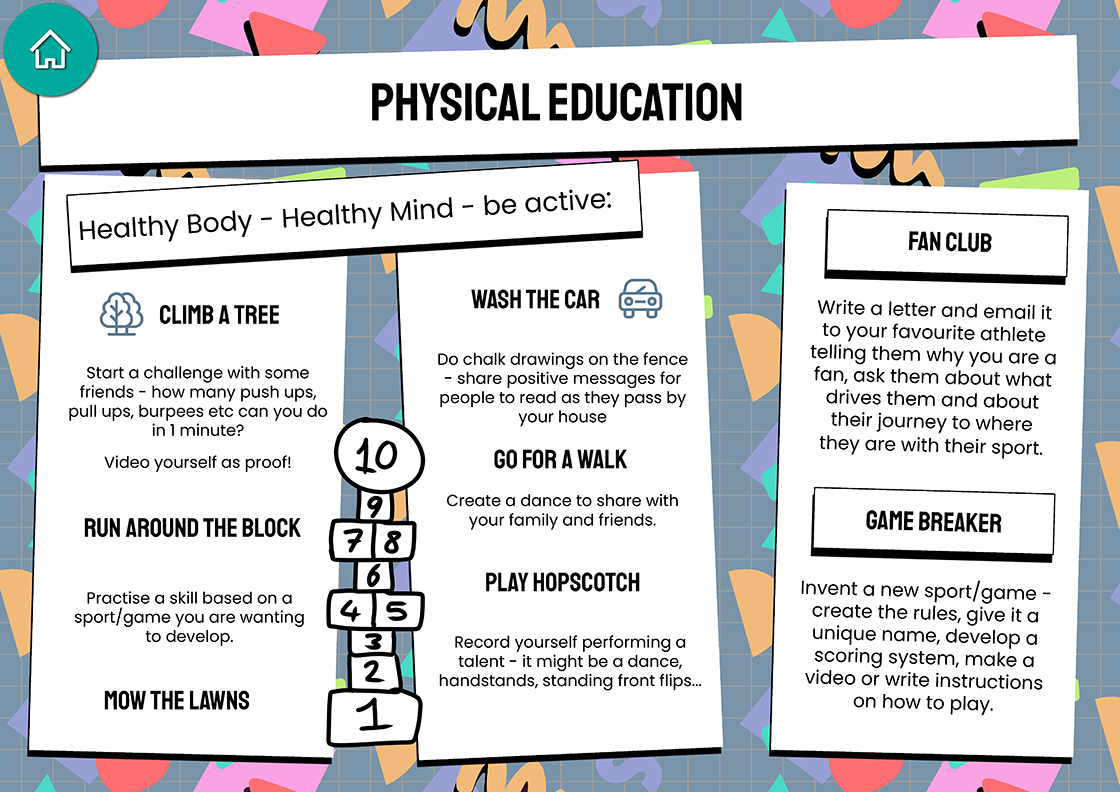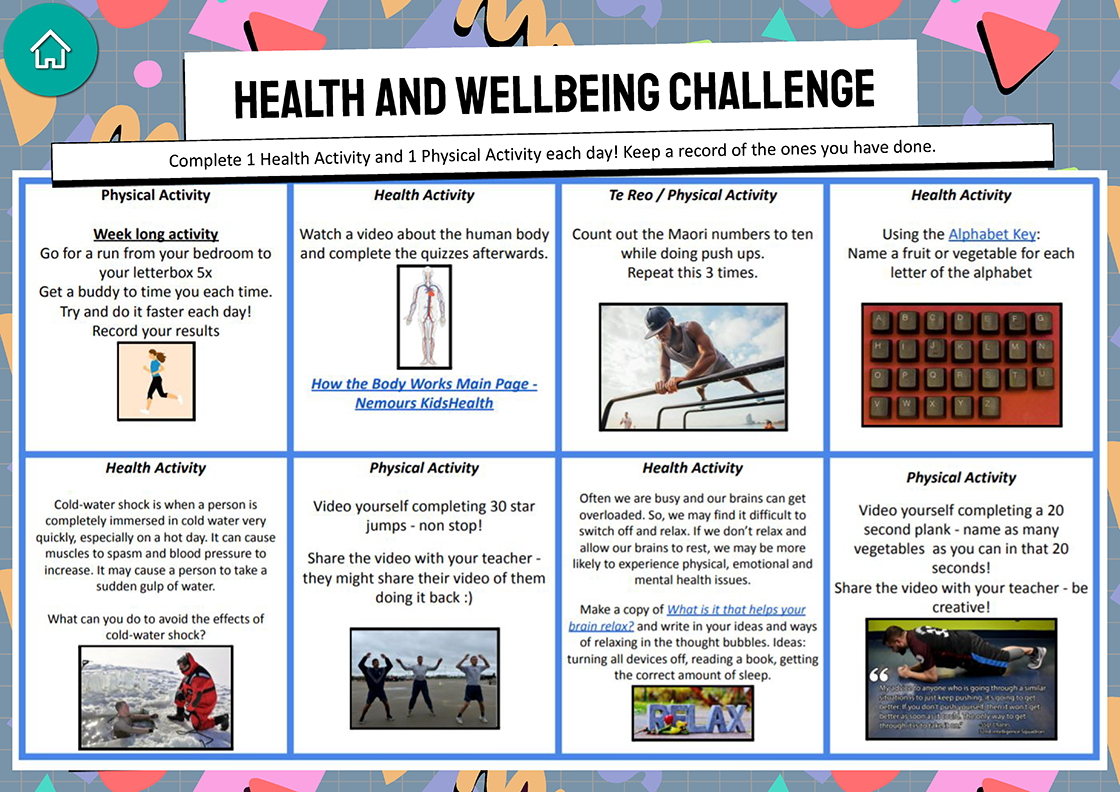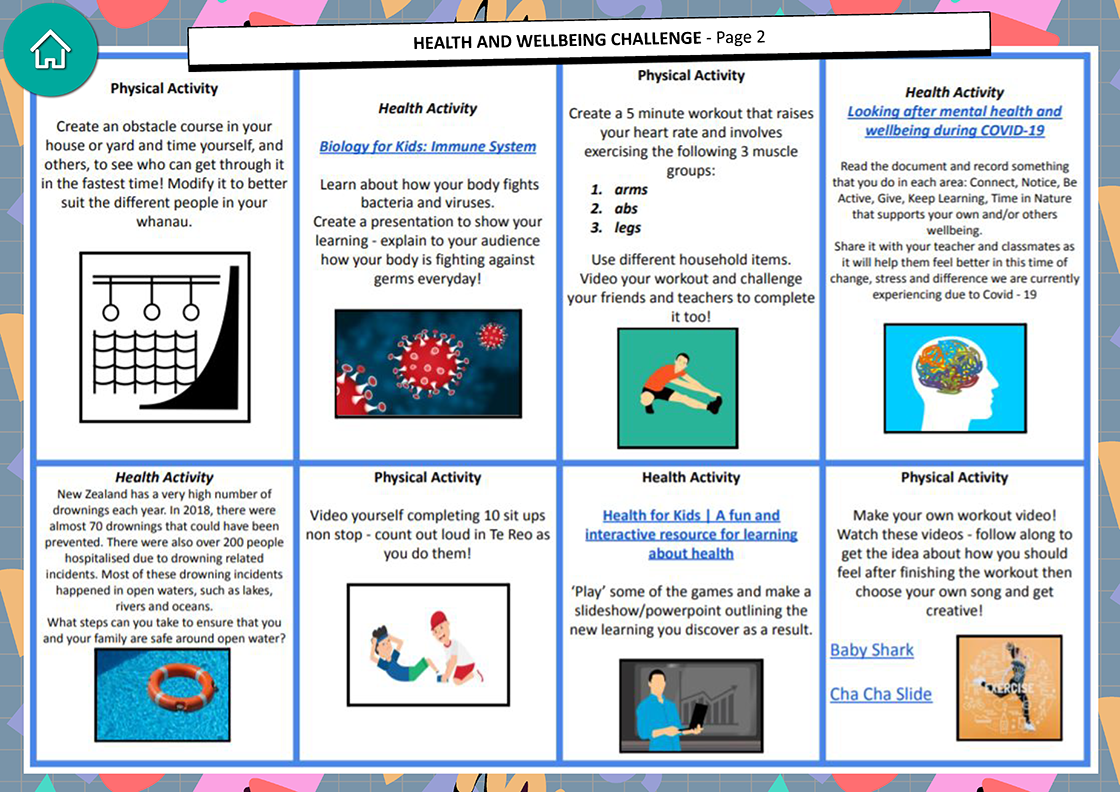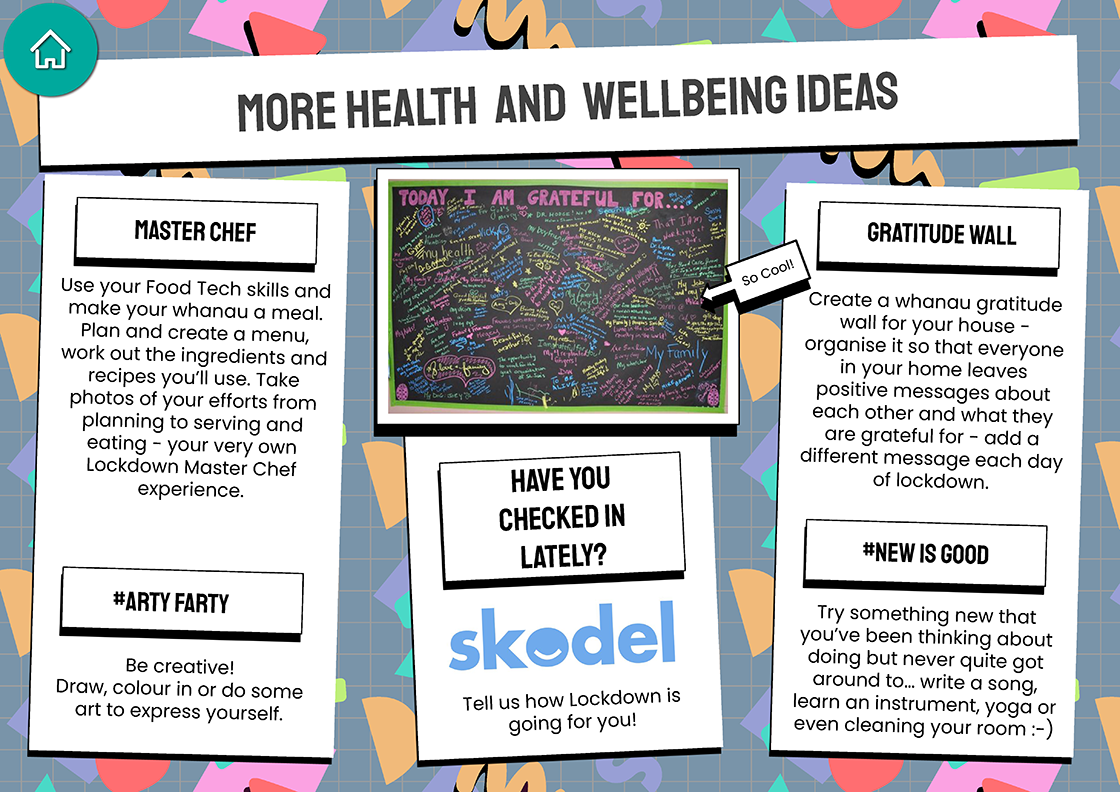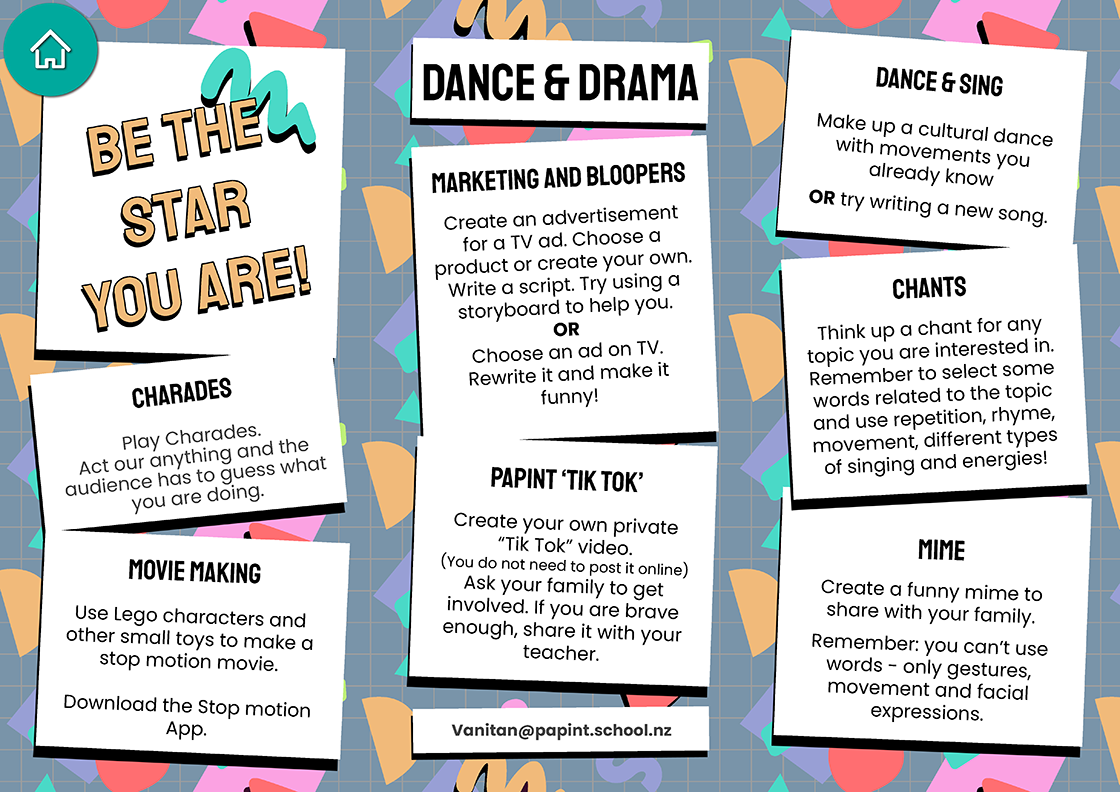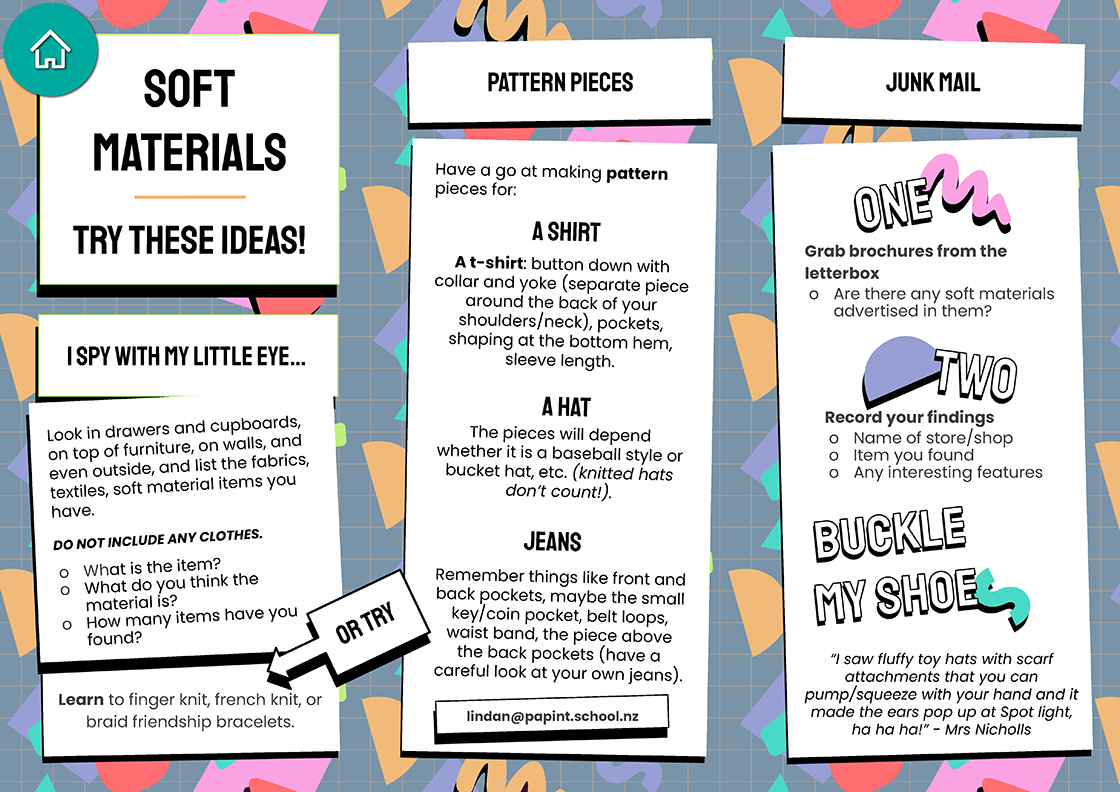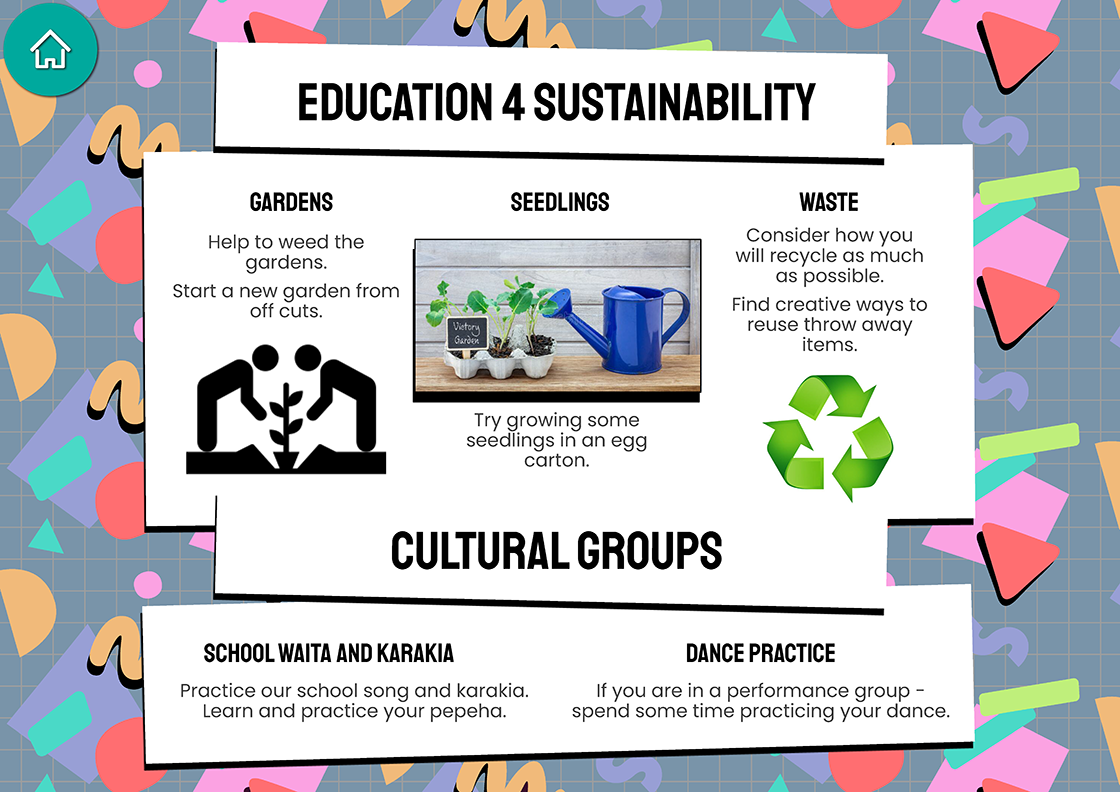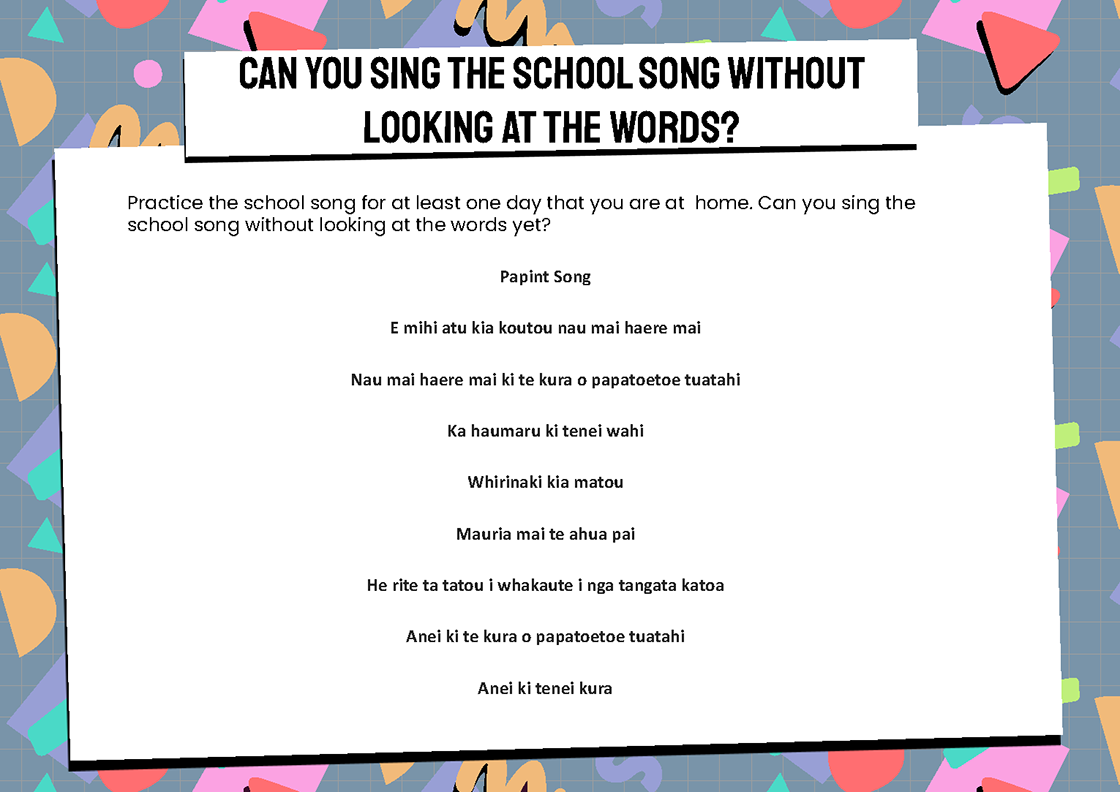Graduate Profile
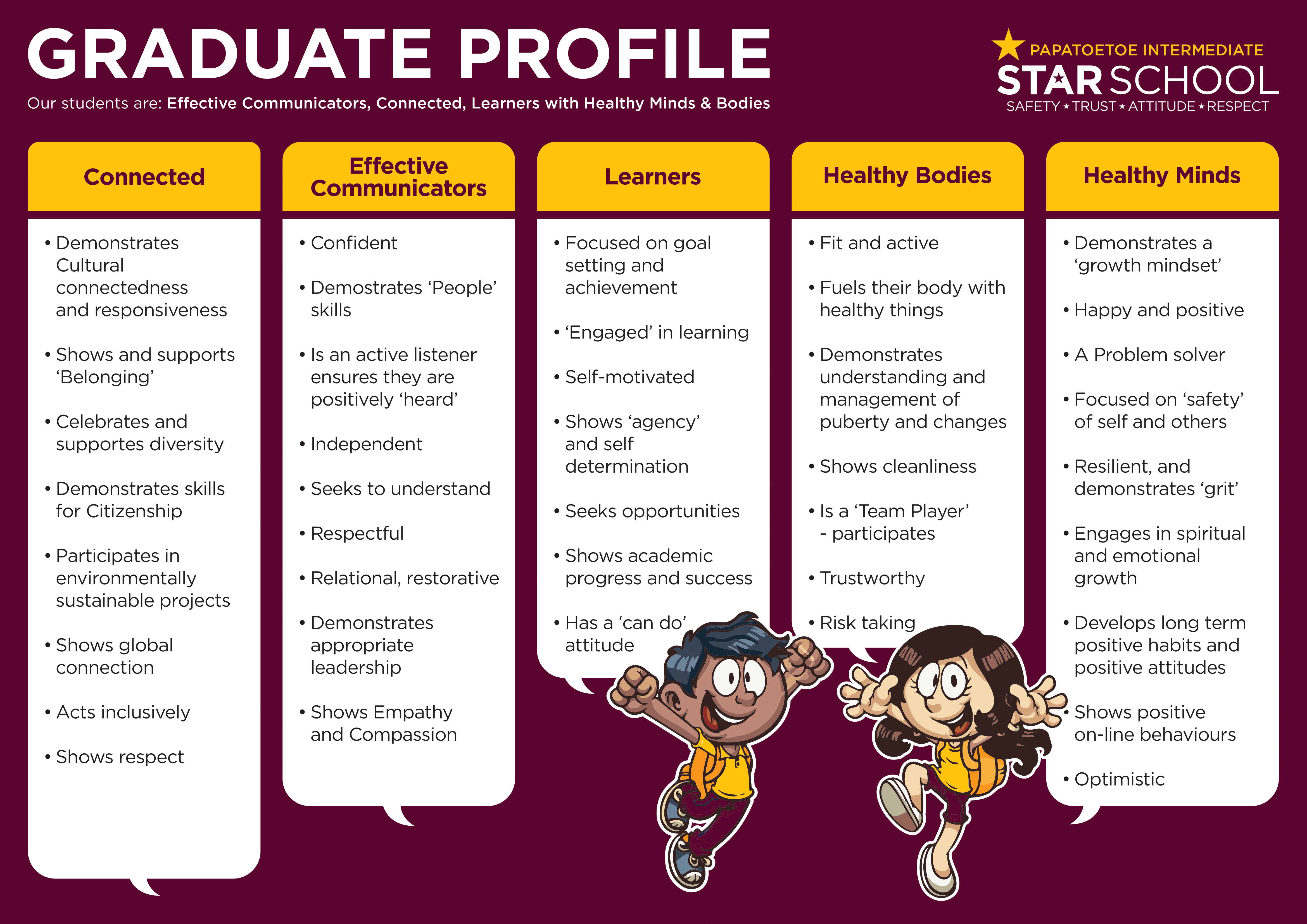
Core Curriculum
Papatoetoe Intermediate places priority on the development of core curriculum subjects (Reading, Writing, Oral Language and Mathematics) skills and knowledge. We believe that these skills are fundamental to lifelong learning. Therefore our timetable starts everyday with whole school Mathematics teaching and learning followed by Literacy.
We also believe that learning should be motivating and fun; that students and their teachers should look forward to and enjoy the process of learning. Therefore we ensure that learning is set at levels that both challenge and affirm students’ efforts and that teachers work in small groups to ensure that every student gets the individualised support they need.
Learning within Reading and Writing will be increasingly integrated with other curriculum areas, such as Social Sciences, Science, History etc. as students read to learn and write to record learning. However this does not diminish the need to continue to extend ability within these Literacy areas.
Reading
Our Literacy programme aims to provide an environment conductive to learning. Students gain Literacy knowledge that will help them be successful in achieving their lives’ goals and opportunities. Feedback is given that will help them learn, and help them as they become and remain motivated to be successful both in Literacy and in applying their knowledge to participate as active members of society. We are a Duffy books in Homes School and are very appreciative of the ongoing company sponsorship and Board of Trustees support to enable this to happen throughout the year. All students benefit from the wonderful selection of books they choose 3 times a year. We believe in the importance of all students having hard copy books to support their Reading ability.
This is covered in our school through….
– Classroom based lessons and other structured opportunities across the curriculum
– ELL and Learning Support withdrawal and in-class support
– Working ‘across the curriculum’ in a variety of contexts – Digital Technology, Assemblies, The Arts, Cultural Groups etc.
– Duffy Books – regularly given to students to take home.
Writing
Students are given opportunities to write everyday. Integration with other curriculum areas is essential in order for students to become more aware of the PURPOSES of writing and the variety of ‘structures’ that come with those. Other purposes should continue throughout all terms alongside the ‘focused purpose’. Students learn to integrate Writing using Digital tools.
Classrooms should be saturated with print – Writing exemplars for students to refer to; writing process available to refer to; Explanations on the walls of writing genre features written by students.
Mathematics
Learning must be authentic and include real life situations. Planning is based on student learning needs and differentiated where necessary. Students must have access to hands-on activities. They also need to be able to have choices and let their curiosity direct their learning. Students need the opportunity to practice skills as follow up from the new learning. Technology must be incorporated within the Mathematics programme so that the learning is enhanced. In Mathematics the teacher’s role is to act as a facilitator.
Teachers follow the whole school yearly Mathematics plan and from this develop their class plan with a term overview and weekly plans for number (including all three domains) and Algebra, Geometry and Measurement, and Statistics.
Homework
While ‘Homework’ does not necessarily mean that students make better progress it does provide a link between whanau and the school. Research does confirm that students who make the best progress are those who are supported by the school and whanau together. Whanau and teacher meetings provide a platform to support the relationships between home and school with the child at the center.
Our school encourages all students to read every night, and for whanau to support and encourage this. We also will provide set homework that reviews the classroom learning. We encourage whanau to establish and maintain regular set routines for ‘homework’ and for communication with the classroom teacher, who your child will probably have for the two years they attend our school. Regular emails will clarify what learning is being undertaken in class and will provide whanau ways they can support and extend that learning at home.
Learning Support
Some students need additional support in order to access the curriculum, they may be learning English, or have barriers that they need support to overcome. Papatoetoe Intermediate School works to ensure that we recognise every student’s potential and that they are well supported to achieve the highest levels of capability.
We know too that some students find the core curriculum areas very difficult but are masters within other curriculum areas. Our intention is to recognise potential and strengths in all areas and to support growth. We support students to make progress even in areas they may not particularly ‘like’ or feel they are ‘good’ at. It is the thirst for knowledge and the mastery of skills that is the essence of a good education.
STAR
We aim to create an environment of positive behaviour throughout our school which will effectively support student learning. We have four key STAR expectations for all students and staff

How STAR works
- We used an internationally recognised, research based framework to create an approach tailored to our school. STAR is not a “bolt-on” programme that we have bought into.
- We implemented it in the belief that students achieve most with a combination of good teaching and behaviours that are appropriate for school.
- Staff and students have collaborated to develop a common purpose and approach to discipline, with consistent ways to manage behaviour.
We clearly define what are expectations are. The core STAR expectations are broken down into school wide expectations and expectations for each area of the school. - It is a positive approach to behaviour management, directly and explicitly teaching positive behaviour expectations.
- We give positive feedback when expectations are met and reinforce this with reward systems such as STAR nominations, House points and Whole School Rewards.
- We have consistent, relevant responses to inappropriate behaviour.
- We constantly collect data about behaviours and use this to continuously adapt our strategies for their management.
- We would welcome input from our wide school community into our behaviour management strategies. Please contact the school if you would like to know more or comment.
Digital
Students at Papatoetoe Intermediate use digital technologies as an integral part of their learning. We want students increasingly confident, competent and creative in all things digital. Here are some of the ways we enable this to become a reality:
- Ultrafast broadband and wireless throughout the school.
- All students are provided with a Google account so that they can easily access their work when they are outside of the school.
- Specialist Digital Technologies teaching for all classes including programming and robotics.
- Enrichment robotics classes.
Students are encouraged to bring their own devices to school. Please ask for a BYOD form if you would like to know more.
Students are also taught to be responsible digital citizens and they must sign a “Responsible Use Agreement” before using computers.
The Ministry of Education have produced this information sheet for parents about the use and safety of wi-fi in schools if you are interested.
Specialist Subjects
Soft Materials and Textiles Technology
We have the opportunity to get creative whether we use the sewing machines, felt wool, embroider or design garments. The stages of technological design, skill development, production, and evaluation provide a learning approach which applies to a wide range of occupations.
The dexterity required and ability to think in 3D support the development of our future surgeons, vets, dentists, mechanics, builders or engineers. The range of products in soft materials are so vast and tactile, there is room for imagination to flourish, for self expression, for practical purposes or pleasure!
The time and focus demanded of a creation can be so meditative and relaxing. When completing a job well, especially if your creation is gifted, the satisfaction is a well earned reward!
Welcome to creative you…
Hard Materials
The programme for Year 7 students is based on building their foundation and confidence with the focus on safe working habits and correct use of basic tools and equipment. In Year 8 the students continue to further develop and master the knowledge and skills as they are given the opportunity to work more independently in producing their outcomes.
Student’s are given the opportunity to choose from a list of projects to create their outcomes. They also go through the process of planning and designing and develop their knowledge and skills in the use of Technological Processes in creating an outcome.
Finally they go through the process of reflecting and evaluating for improvement.
Food Technology
Year 7
Students are learning to follow a recipe in the Food technology session. The aim is to make sure that students are aware of the language, symbol and text used in the recipes, how to measure ingredients using different utensils, how to manage themselves within a given time and at the same time learn about food from different countries. Students develop an understanding of the properties of ingredients used and its effect on the product. They also develop problem solving skills through the challenges they face while following the recipes.
Year 8
At year 8 students are more aware of the skills , knowledge and the routines in the Food Technology room. The students are given the opportunity to enhance the skills by making changes to the recipes or developing their own recipes for a given occasion. Students get more confident when using a recipe. They also add their personal or cultural flavour to the dish.
Learning some basic food technology skills at year 7 and 8 is imperative for our students. It is important to build up a bank of skills and recipes which can be used as a platform for further development.
Extension / Enrichment Classes
Students who have a passion for this subject apply to join the classes on Wednesday’s. This provides the students an opportunity to develop the skills and knowledge gained in year 7 and Year 8 and also gives them range of experiences in this area.
Performing Arts
The arts are powerful forms of expression that recognise, value, and contribute to the unique bicultural and multicultural character of Aotearoa New Zealand, enriching the lives of all New Zealanders. The arts have their own distinct languages that use both verbal and non-verbal conventions, mediated by selected processes and technologies. Through movement, sound, and image, the arts transform people’s creative ideas into expressive works that communicate layered meanings. NZC
At Papatoetoe Intermediate we have a purpose built room, with mirrors and curtains for performance.
Visual Arts
Year 7
In their first year at Papatoetoe Intermediate students will be introduced to many types of media. Lessons begin with questions around the importance of art and its history. Students will experience several skills based activities such as mixing primary colours, shading and an understanding of the ‘Elements and Principles’ of art through experience. Students will then look at the Big Question and consider this in regards to a focus artist. They will learn how to look closely at artwork and explore an artist’s intentions. They will develop literacy in regards to communicating ideas within their own work and another artist’s work. Students will then start to shape their own ideas in response to the Big Question and explore their connection to, or concerns for a chosen animal or environment. From here, the media of collage, wood cut, dye, pastel will be used to communicate their ideas.
Year 8
In year 8 students work on three to four key pieces. The first task is to re-visit an art experience they did last year but add to this using any media they wish. They are then introduced to a skills based task of choosing an architectural or structural form to copy using simple perspective principals. Next they render it in pencil giving it depth and form through the use of a variety of shading methods. Students then consider the Big Question and look at a variety of artists. From here, students start to design their own artwork, either a tiki, shoes, planes and kites; within this they follow criteria to steer them towards the given theme. There is a lot of freedom as to what media they use and what images they choose.
Extra Curricular
Visual Arts are also offered during the year as part of our extension programme. Some examples being; Art History, Self Portraits, Printmaking and Sculpture, Trash to Fashion, Pacific Arts. Students who display ingenuity or competence in Visual Arts have the opportunity to be selected for two major exhibitions throughout the year. The first being the Auckland Intermediate and Middle Schools Art Exhibition and then a ‘Inner City Schools’ Art Exhibition at Papatoetoe North Intermediate. The Visual Arts are also celebrated with a core group of artistic students who are also enlisted to help design and paint sets for our end of Year Graduation Dance.
Music
Year 7
Over the course of six lessons, Year 7 students will use SOLO Taxonomy to grow their creative critical thinking skills, while further developing the five key competencies. Students experience hands-on practical instrument skills while expanding their aural awareness. Lessons will cover all strands of the Music Curriculum.
Year 7 music students will about:
- The main elements of music: Rhythm, Harmony, Melody, Tempo, Tone, Form and Dynamics.
- The importance of rhythm.
- How to play the drums from beginner to advanced
- Create and play Harmony on Ukuleles
- Create and play Melody on Piano
- Work as groups to help each other reach goals.
Year 8
Over the course of six lessons, Year 8 students will use SOLO Taxonomy to grow their creative critical thinking skills, while further developing the five key competencies. Students explore the importance of music within our local and wider culture, more hands-on practical instrument skills while expanding critical listening skills. Lessons will cover all strands of the Music Curriculum.
Year 8 students will learn to:
- Investigate the importance of music within our culture
- Develop ideas on how to express music through different genres and rhythms
- Play harmony and melody on Piano, Guitar and Ukulele
- Work together to perform as part of groups.
- Incorporate technology to create and record compositions
EAE
Extension, Academies and Enrichment (EAE)
This programme is designed to offer students an opportunity to reveal their own potential through a strengths-based programme. Extension classes provide opportunities for students to extend their learning, move to the next level on a specific subject. During these sessions students will engage in activities based above their year group expectation. Academies programmes provide passion based options to students to explore new learning and experiences. Enrichment classes provide opportunities for gifted/ talented skills to be further enhanced. Expand the student knowledge base and further nurture their special talents to allow them to develop to their full potential. During some of these programmes, pupils get the opportunity to interact with like minds where they get to challenge each other’s capabilities as well as motivate each other. EAE provides students a chance to develop a sense of achievement outside the ‘normal’ classroom curriculum.
Mathematics Extension
The Extension group will meet on Wednesday morning for one period a week. During this time students will be working on various extension activities to enhance and extend their Mathematics capabilities. Students will also be strengthening their problem-solving and key maths skills with these extensions class. Students will build computational fluency and conceptual understanding through:
– Writing to explain solutions
– Problem solving practice
– Numbers in real-world contexts
– Challenge problems and class projects
Through practice to support students, they will develop into strategic, thoughtful and confident thinkers.
Writing Enrichment
The Writing Enrichment group meets weekly during term time. Students work on various Literacy enrichment activities to enhance and extend their Writing capabilities. They have the opportunity to work with local authors who support them to write and publish their work. Their written pieces are also published in the school Yearbook.
Cultural Elective (CE)
This programme is designed to teach about different cultures and diversity. The Importance of celebrating different cultures and diversity will help your students tremendously. Learning about diversity promotes creativity, high level thinking, and collaboration. Our school represents various students from different backgrounds, cultures, ethnicity, language, religion, and physical ability. Being diverse is defined as all the ways we are alike and different.
The duration of Cultural group and electives programmes is a year long, weekly on a Thursday last period. Students will have to select a culture they would like to explore/ learn more. They will learn about language, culture, art, music, costumes, traditions, artefacts and prepare performances or some form of showcase for the International Cultural Festival in Term 4.
Sport
Study Centre
Study Centre runs on Mondays, Tuesdays, Wednesdays and Thursdays in the Library. Sessions run from 3:00pm to 4:30pm.
This is not an after-school care service, but an opportunity for students to be supported and extended in their learning, with the help of the adults and resources in the Library. Students are expected to work on their homework and other assignments from class. They will also participate in online and optional activities. A light afternoon tea is provided.
There is no charge for this programme but students must be committed to using it as a serious opportunity to learn. Parents must be committed to supporting them in this by visiting Study Centre at least once a term to see what their children are doing.
If you are interested in a place for your child on the programme, please click on the link below for the enrolment form.
Study Centre reserves the right to discontinue enrolment if parents and students do not meet our expectations.
Library
Our Library Assistant is Mrs Dass and she is helped by our great team of Student Librarians. The School Librarians also have rostered duty during the break times. During this time they help to issue and return books, support students and the duty teacher.
Students can come to the Library to borrow books, be with their friends and play board games during breaks. Classes are timetabled to visit the Library on a weekly basis. Students can borrow two books during this time and can issue books during break times as well. Loans are for two weeks but students can issue and return their books before the two week period finishes.There are no overdue charges, but there is an expectation to pay for lost or damaged books.
Our Library has colourful and interesting wall displays that are regularly updated. We have a wall especially dedicated for displaying student work.
There are computers for students to use for school work, research and for reading the online books from Wheelers.
Clicking on the button below gives access to the School Catalogue. Students are able to reserve books and check their accounts by logging into this catalogue
Duffy Books in Schools
Papatoetoe Intermediate is proud to be a part of this programme. Every student in our school has the opportunity to choose their own books which they are able to keep. Over the year there are special role model assemblies, Grand parents, Mothers and Fathers day assemblies.
This is possible due to the contribution from our Board of Trustees and our Duffy school sponsor, Latitude Finance and we thank them for their generous financial support of this amazing opportunity.
Wheelers ebooks: as part of Duffy Books in Homes school, we also receive access to the Wheelers Digital books that are available to all our students at no cost. It is a wonderful opportunity to access a wide range of books online and support Reading, both at school and home.
Peer Mediators
The Cool Schools Peer Mediation Programme is a whole-school programme that teaches essential life skills for peaceful conflict resolution. The skills taught empower individuals to build positive, caring relationships with others especially when conflict arises over differences. Each class nominates Peer Mediators who are trained to support the process. Every fortnight, Peer Mediators meet for training and development sessions with the teacher in-charge. These sessions include theory and role play to enhance students knowledge, understanding and skills and to help develop self-confidence. Students also learn a range of other skills and strategies that support their roles as effective peer mediators.
Class Leaders
Papatoetoe Intermediate School is committed to training students to be ‘leaders’. The promotion of leadership skills and capabilities provides students with purpose and motivation. Leadership roles are selected within a range of interests and capabilities; IT Leaders, Class and Sports Leaders, Health Ambassadors etc. Our students may show natural capability that the school actively supports and trains. This training is undertaken by classroom teachers and mentors. At our school, we say ‘Every Year 8 student is a leader!’ Before the end of Year 7, students are selected for leadership roles and training begins in preparation for Year 8. At the start of each year expectations and responsibilities are taught and students agree what the celebration event will be for meeting the expectations throughout the year. Student leaders are awarded a job-specific badge.
Learning From Home
Papatoetoe Intermediate School recognises the value of supporting students to make real links to learning provided both at school and at home. Research tells us that students make more academic progress if learning is supported at home too.
During the coming weeks, your child may need to work from home while isolating, if they are identified as a close contact. The school provides both online and offline options to support their continued learning.
We hope what is available helps whanau as they support their children. Please provide feedback to teachers and school leaders if you have any questions or concerns…. We want to provide excellent support and opportunities.
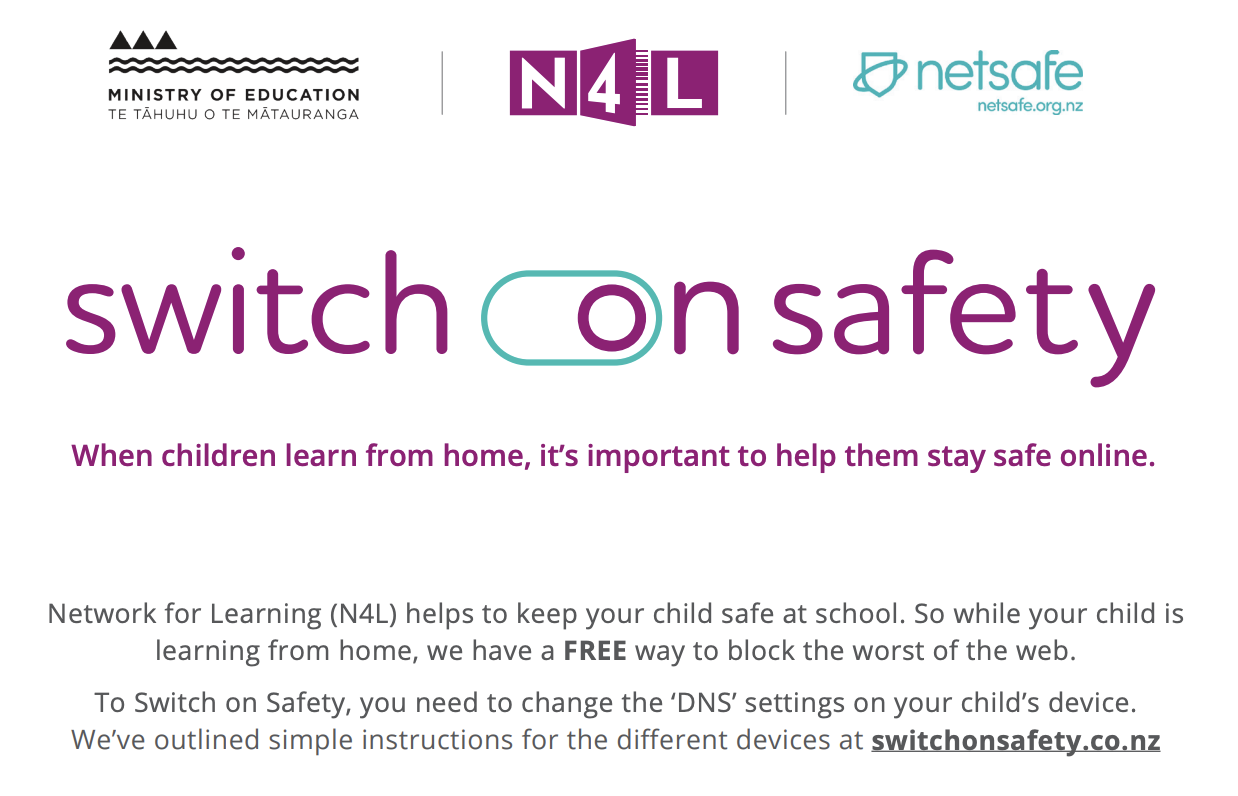
Online Safety Tips
Click to view in Fullscreen
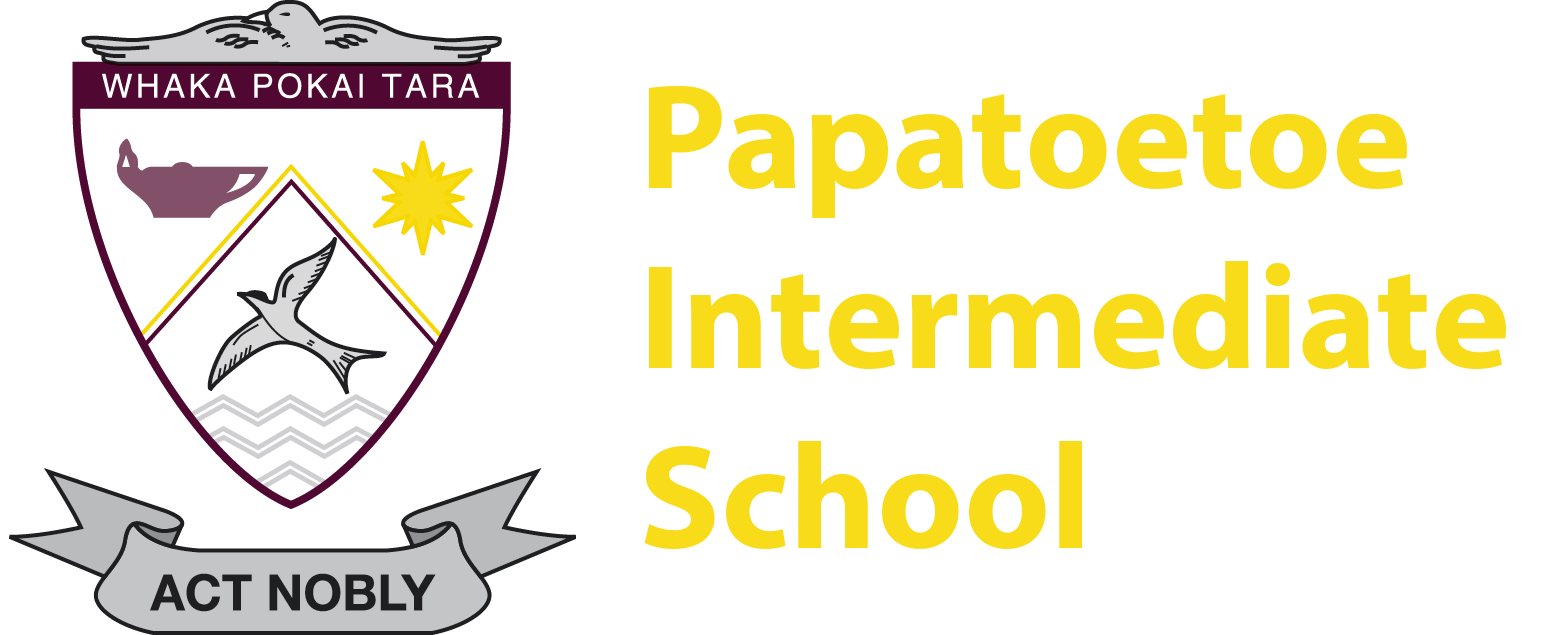
 175
175  09 278 9763
09 278 9763